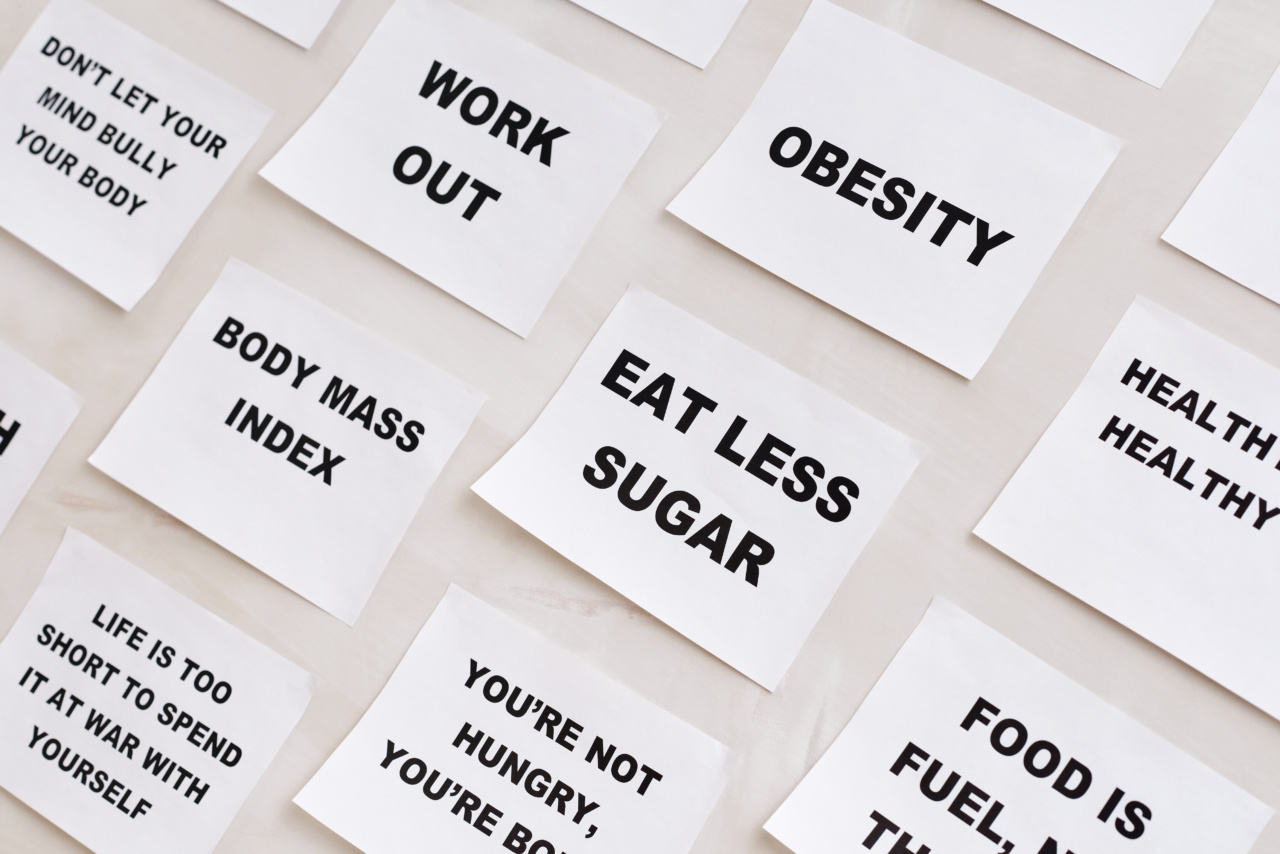Heartburn is a common digestive problem that causes a burning sensation in the chest and throat. It occurs when stomach acid flows back into the esophagus, irritating the lining.
While certain foods and drinks can trigger heartburn symptoms, your eating habits also play a significant role in the development of this condition. In this article, we will explore how your eating habits can cause heartburn and provide some tips on how to manage this uncomfortable condition.
1. Eating Large Meals
Eating large meals can put excessive pressure on the stomach and increase the chances of experiencing heartburn.
When you consume a large amount of food in one sitting, it increases the production of stomach acid, making it more likely for the acid to flow back and cause heartburn. To avoid this, try having smaller, more frequent meals throughout the day instead of three large ones.
2. Consuming Spicy and Acidic Foods
Spicy and acidic foods are known to irritate the esophagus and trigger heartburn symptoms. Foods like chili peppers, citrus fruits, tomatoes, and vinegar can worsen the condition.
If you’re prone to heartburn, it’s best to avoid or limit your intake of these foods to prevent discomfort.
3. Eating Too Quickly
Eating too quickly can lead to swallowing excess air, which can cause heartburn. Additionally, when you eat rapidly, you tend to consume larger portions of food, putting pressure on your stomach.
To reduce the risk of heartburn, practice mindful eating, chew your food thoroughly, and take your time with each bite.
4. Consuming Fatty and Fried Foods
Fatty and fried foods are notorious for triggering heartburn symptoms. These foods take longer to digest, which delays stomach emptying and increases the chances of acid reflux.
Avoiding greasy dishes, such as deep-fried foods and high-fat meats, can significantly reduce the occurrence of heartburn.
5. Eating Before Bedtime
Having a heavy meal close to bedtime can contribute to heartburn. When you lie down, gravity no longer helps keep stomach acid down, allowing it to flow back more easily.
To prevent nighttime heartburn, try to finish your meals at least two to three hours before lying down or going to bed.
6. Overindulging in Alcohol and Caffeine
Both alcohol and caffeine can relax the lower esophageal sphincter (LES), a muscular ring that prevents stomach acid from flowing back into the esophagus. When the LES is weakened, it becomes easier for acid to escape and cause heartburn.
Limiting your consumption of alcoholic and caffeinated beverages can minimize the risk of heartburn.
7. Skipping Meals
Skipping meals or going for long periods without eating can lead to heartburn. When you’re hungry, the stomach produces more acid, which can result in acid reflux.
It’s important to maintain regular meal times and avoid prolonged fasting to prevent heartburn symptoms.
8. Eating Trigger Foods for You
While certain foods are commonly associated with heartburn, it’s essential to understand that triggers can vary between individuals.
Pay attention to your own triggers and avoid or moderate the consumption of foods that consistently cause heartburn for you. Common trigger foods include chocolate, onions, garlic, mint, and carbonated drinks.
9. Eating Too Close to Exercise
Eating a large meal too close to exercising can lead to heartburn. Physical activity increases abdominal pressure, which can force stomach acid back into the esophagus.
Allow at least a couple of hours between eating and exercising to reduce the risk of heartburn.
10. Drinking Large Amounts of Fluids with Meals
Drinking excessive amounts of fluids during meals can dilute stomach acid, making it less effective in breaking down food. This can result in improper digestion and acid reflux.
It’s best to limit your fluid intake during meals and opt for smaller sips instead of gulping down large quantities.




























